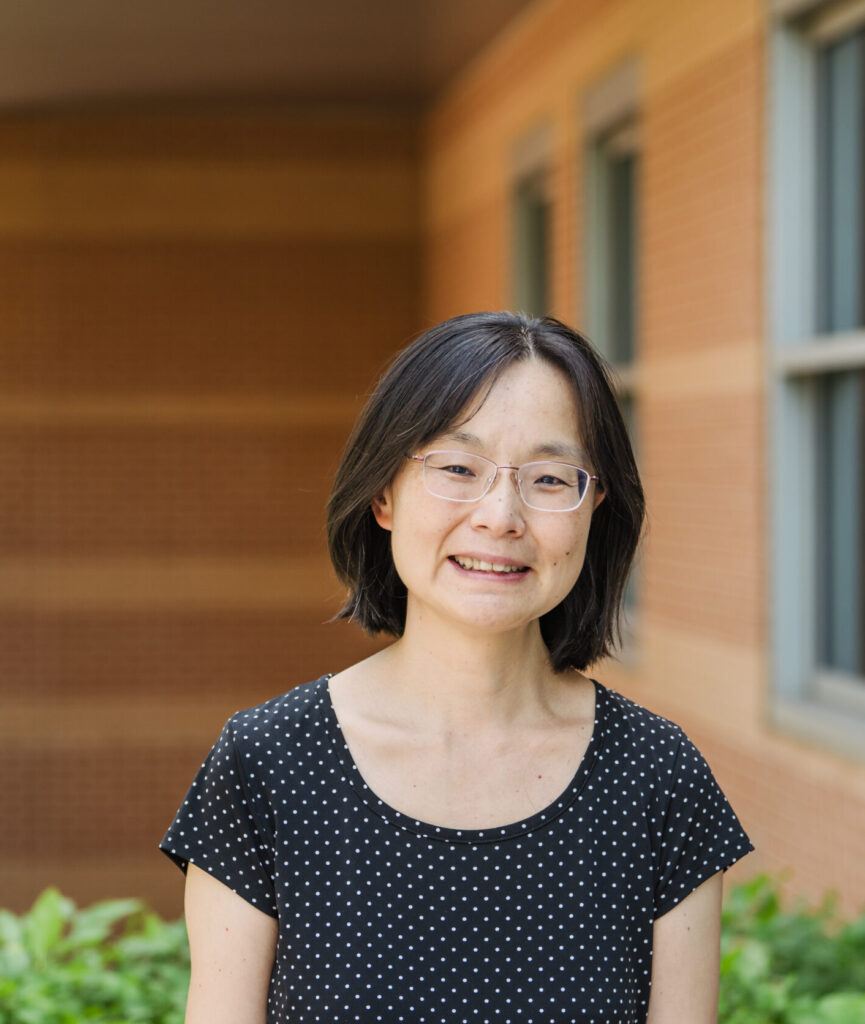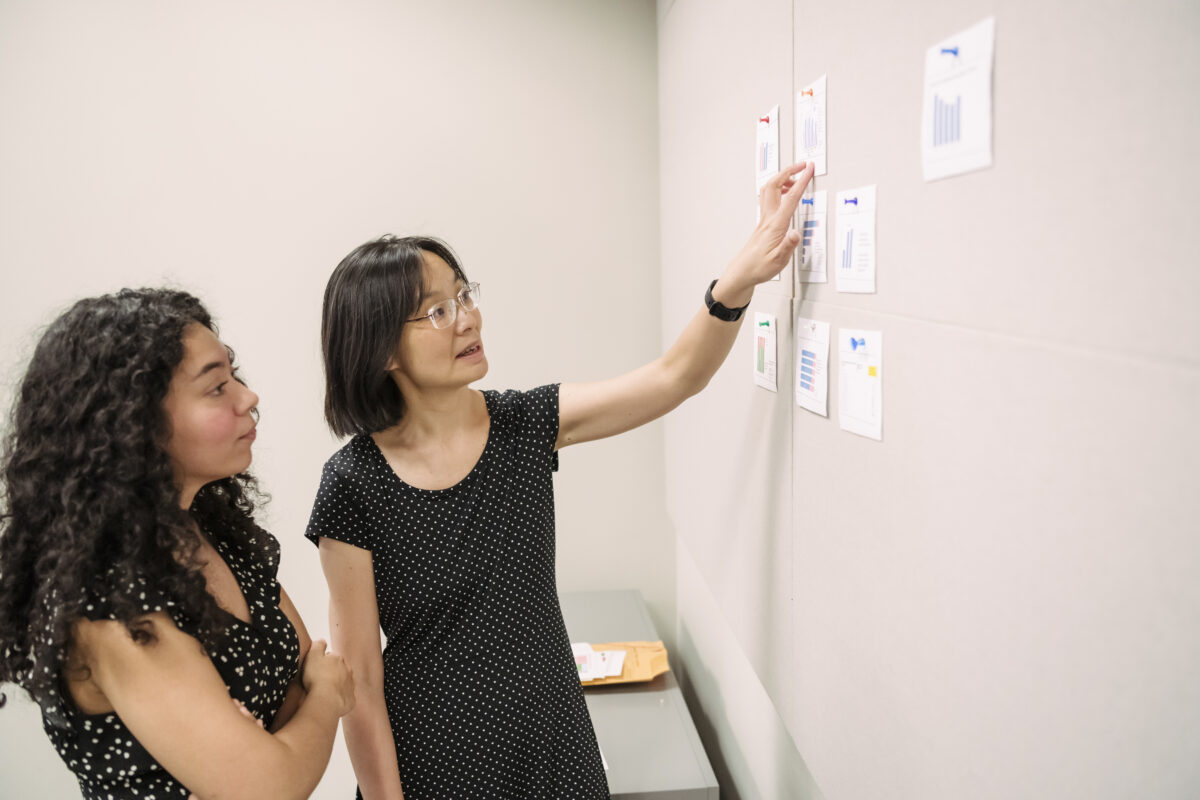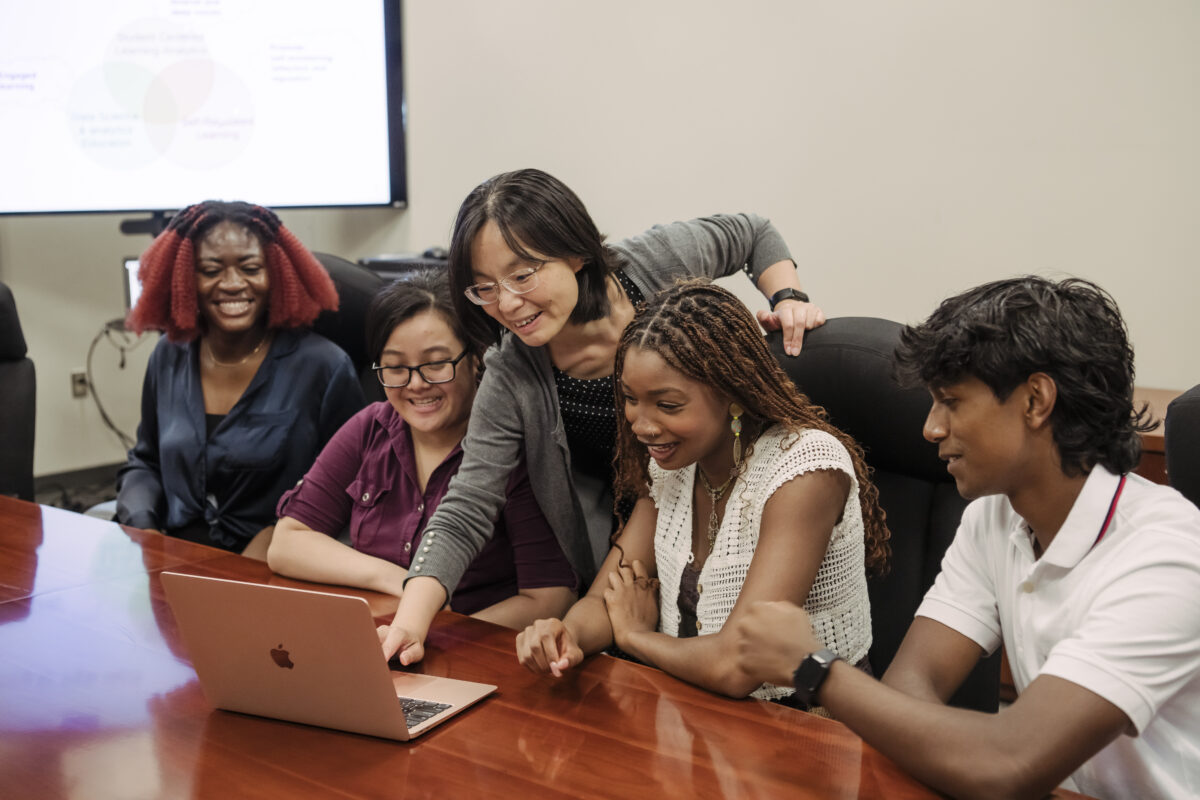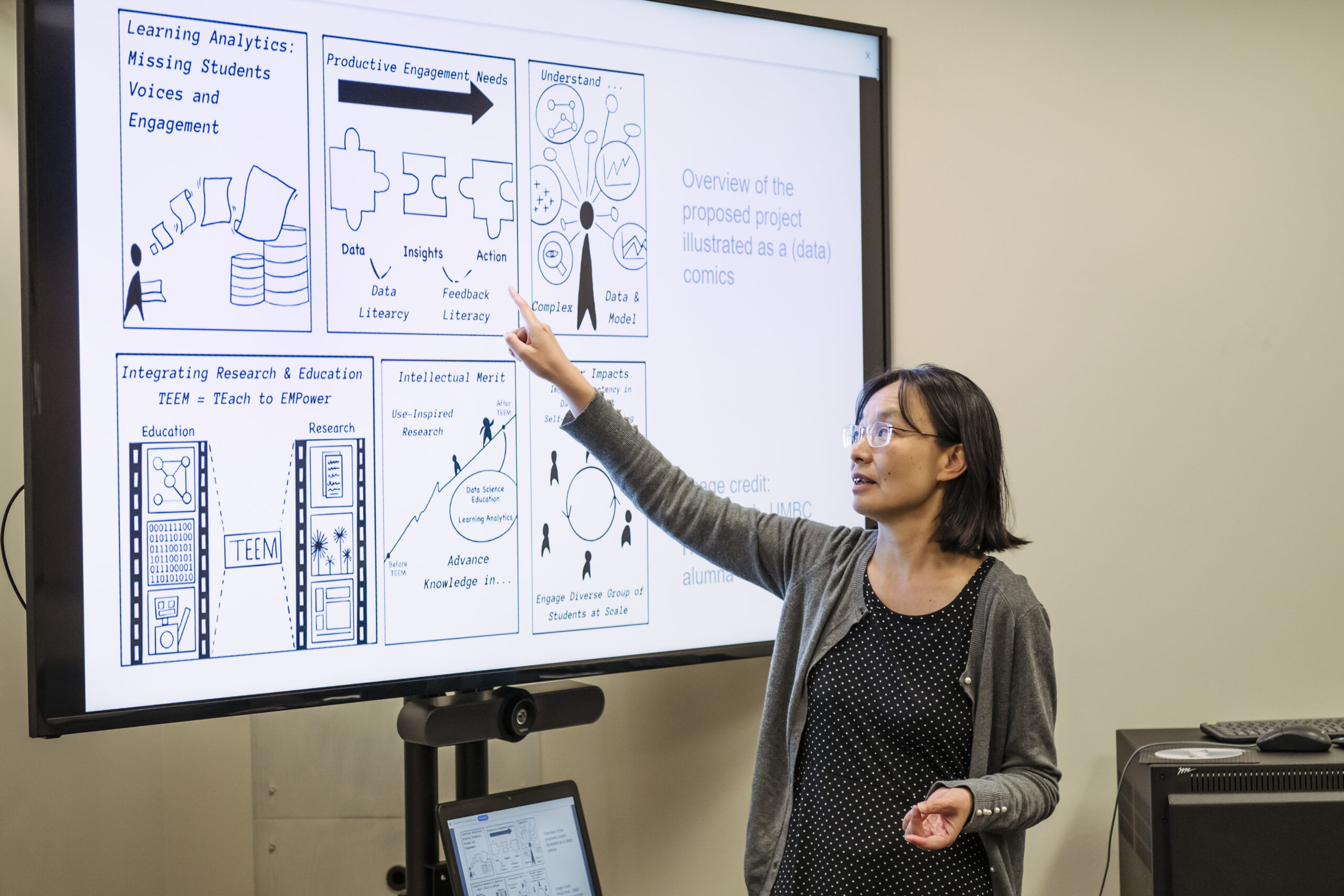When Karen Chen’s now teenage son was in third grade, he would complain that math homework was “boring.” Chen wanted to change his perspective. She presented him with extracurricular math problems and coached him through the most challenging ones. Being a data scientist, she also recorded the sessions and rigorously analyzed the video and audio for insights about his learning experience. One of her key takeaways: Her son rode an emotional roller coaster as he worked through difficult problems. Her attentive tutoring helped him through the confusion and frustration to reach the joy at the end.
Since the project with her son eight years ago, Chen, an assistant professor in the Department of Information Systems at UMBC, has made learning analytics a pillar of her research. The field seeks to collect and analyze data about students and their environment with the goal of improving learning outcomes. Chen recently won a National Science Foundation (NSF) CAREER award to advance this research with a new project that puts students at the center of learning analytics—not just as subjects who supply data, but also as the designers of analytical tools and users of the insights they provide.
Chen’s CAREER award marks the 50th time a UMBC faculty member has received the prestigious grant, which the NSF established to support early-career faculty who have the potential to serve as leaders in integrating research and education.
“I’m really excited about this project,” Chen says. “I love teaching and interdisciplinary research and this is an excellent opportunity to combine them.”
Learning analytics, “for students, by students”

Chen’s Lab for Informatics for Human Flourishing at UMBC is dedicated to using data to improve people’s lives. “I like to center all my research on promoting human flourishing, meaning people are not just surviving, but thriving. I use this concept as a North Star,” explains Chen.
Education is a key pathway to advance human flourishing, Chen says, and she looks forward to improving student learning experiences and outcomes through her CAREER award project.
The project will start by engaging students enrolled in Foundations of Data Science (IS 296), a relatively new undergraduate course at UMBC, introduced by Vandana Janeja, information systems. IS 296 recently became a general education program course at UMBC, open to all majors with no prerequisites.
Under Chen’s guidance, students in the class will collect data about their lives—how much sleep and exercise they get, how much time they spend talking to friends and family, how stressed they are feeling, and more. They’ll also gather information related to their classes, such as already available data about how often they log into and use the university’s learning management system, Blackboard, and track how much time they spend focusing on classwork (versus, say, becoming distracted by other open tabs on their computers.) The data will be available only to individual students and those they designate as trusted collaborators.
Students will then work through data science activities, analyzing the information they gathered and seeing if they can gain insights to improve their well-being and academic success. At the same time, they will build a critical competency called self-regulated learning, says Chen.
Based on feedback from the class, Chen will then work with students to design and develop an online platform, called “Live Data Lab,” where a broader student community can find tools to track and analyze their own well-being while learning basic data science concepts and techniques. This platform will also provide opportunities for students to explore creative expression of data through mediums such as digital data stories, data art, data comics, or data memes.


Left: Jennifer Posada Granados ’21, an incoming Ph.D. student in the human-centered computing program, and Karen Chen look at printed visualizations of data gathered from UMBC students. Right: Chen talks with students, from left to right, Yetunde Okueso, Kara Nguyen, Joy Ware, and Kavin Manivannan. (Marlayna Demond ’11/UMBC)
Chen will test-run the platform with around 500 students, including first-year UMBC students enrolled in a new seminar course offered by Academic Engagement and Transition Programs, as well as students enrolled in UMBC’s Department of Education pre-service teacher preparation programs. The project will also engage students from community college partners such as Montgomery College.
Empowering students for success
UMBC is an excellent place to conduct the project, Chen says, because it has a culture of promoting student success in its diverse community by empowering students with support and tools. UMBC has also been a leader in learning analytics, already gathering data about how students use its learning management systems to improve students’ learning outcomes, and protecting that data’s privacy, Chen adds.
“This project would not be possible without the support of the Division of Information Technology, in particular John Fritz and his team, who created the Check-My-Activity tool, a student-facing learning analytics tool that has been in operation in UMBC for more than a decade,” Chen says. The project will also be supported by information systems faculty Andrea Kleinsmith, an expert in human-centered design, and Zhiyuan Chen, an expert in data privacy, Chen adds.
“The question driving the work is: How can we best center students’ voices and empower them in the data-driven decision-making process?” Chen says. “This project will provide many opportunities for undergraduates and graduate students at UMBC to get involved. Not only will they contribute to the research, but I hope they will also become deeply engaged with their learning and empowered to become better versions of themselves through data, scientific evidence, and reasoning.”
Tags: COEIT, IS, NSF CAREER award, Research

